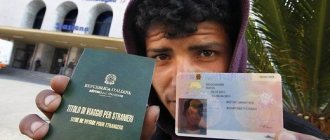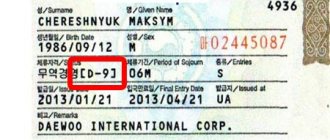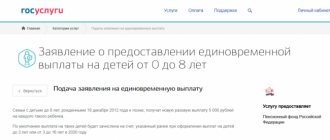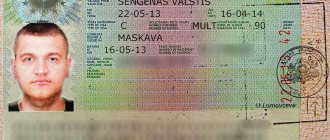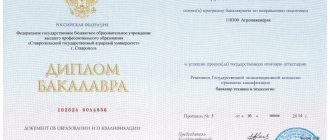- 6398
- 27 March 2021, 07:35
- visaworkEuropeinteresting to know
There are more and more freelancers and remote workers every year, and the lack of ties to the office makes them very mobile. In some countries, to attract such foreigners, they offer a “digital nomad” visa - CityDoog.by explains what it is.
Who are “digital nomads”?
Now not only freelancers, but also remote workers are free from office work. To denote a new social phenomenon in the English-speaking world, the term digital nomads , the literal translation is “digital nomads”. This is the name given to people who constantly move because they are not tied to one place of residence due to remote work.
The authors of the term took the word “nomad” and not “traveler” for a reason: travelers travel around the world as tourists and return to their home, and nomads set up a temporary home where they came.
It turns out that you become a digital nomad if two conditions are met . The first is remote work, when all you need to earn money is a laptop and Internet access. Second : you are considering a foreign country not as a place for vacation or permanent relocation, but as an option for temporary residence.
What is the difference between a work visa and a tourist visa?
The main difference between a work visa and a tourist visa is its longer validity period. A travel document does not allow you to get a job and is issued for a shorter period. Employment with such permission is a migration violation, which threatens deportation from the country. Registration does not require the provision of additional documents. A working visa requires a more complex application process.
Following the recommendations and rules during the application process will allow you to obtain permission without any special complications.
What is a digital nomad visa and how does it work?
On the website of the European Travel Information and Authorization System (ETIAS, this is one of the programs for safe entry into the European Union) they write in which cases people need a digital nomad visa, or a digital nomad visa.
If you work from home rather than in an office, then, in fact, you can do it anywhere in the world. It doesn’t matter for business whether you sit down at a laptop in Belarus or somewhere in Europe.
But people who work for a company in their home country from another country technically fall into a legal gray area. Because you cannot work abroad on a tourist visa, but on the other hand, a work visa is issued only to work for a local organization.
The legal vacuum for remote workers is filled by the digital nomad visa - it officially allows, for example, a Belarusian freelancer to work for a Belarusian company, but to do it from the European Union. In addition, it helps you stay abroad much longer than a simple tourist visa.
Therefore, digital nomad visas are suitable for remote workers who want to live abroad for a while (for example, a year), but do not look for a new job in the country where they temporarily entered.
Types of visas to visit the European Union
Before applying for an EU visa, decide on the type of permit. The following types of this document are distinguished:
- Schengen. The most common and easily accessible, not requiring much effort from the applicant.
- National short-term category C. According to it, you can only stay in the country whose consulate you applied to.
- Transit. A temporary visit to the state for the purpose of transferring to transport to the destination is allowed.
- Single entry visa. With it you can only enter the country once and then leave it.
Example of a single entry visa
- Double entry, allowing you to carry out the entry and exit procedure twice.
This is what a double-entry Schengen visa to Greece looks like
Visas are also divided depending on the applicant's objectives. The most common type is tourist, it is used by those who go on vacation or to visit. Businessmen apply for business visas at consulates. There are also options for entrepreneurs and students. Increasingly, Russians are interested in a work visa, which gives the right to legally work in the territory of the countries of the European Union.
How is a digital nomad visa different from a Schengen or work visa?
A traditional work visa allows you to take a job with local companies and stay in the country for a long time, but ties you to the employer's state. It is also difficult to obtain a work visa: most often you will need a contract with a local legal entity and (or) an invitation letter.
A standard tourist Schengen visa allows foreigners to travel (but not work!) in Schengen countries for no more than 90 days within six months from the date of entry without the right to work in local ones quite simply.
Of course, if you came to the country as a tourist, but took your work laptop with you, no one can stop you from working. Therefore, if “digital nomads” do not intend to stay in one country for more than three months, then many prefer regular tourist visas.
But if you want to live in the country longer than a simple tourist visa allows, and you also intend to work remotely and are not ready to join a local company, then a digital nomad visa .
On average, with a digital nomad visa you can live abroad for about a year, and before local legislation you will receive the official status of a remote worker. At the same time, such a visa is relatively easy to obtain: like a tourist visa, it does not require a long collection of documents and an employment contract concluded with locals.
If you are planning a trip outside the Schengen area
If you need to travel to a non-Schengen state, first of all check the website of its embassy in Russia and determine the requirements for visa applicants . For example, it is even easier to get to countries such as Croatia and Bulgaria than to Schengen. If you are a tourist, registration will require very little time and material resources.
The situation is more complicated in the UK. Visiting it is no less difficult than the United States of America. You will have to collect a lot of documents and answer a lot of strange questions. It must be remembered that recently this state is no longer a member of the EU.
How to get a visa for remote work?
The standard set of basic requirements for a digital nomad visa is as follows:
- valid passport;
- confirmation of stable remote income.
It is important to prove that you are in fact a remote worker and can support yourself financially throughout your stay abroad. Usually, bank statements, receipts and an employment contract are enough for this.
In addition, travelers should always check what additional documents they will need (health insurance, vaccination certificates, payment of registration fees, etc.). Some allow applications to be submitted online, while others require applicants to apply through an embassy or consulate in person.
IMPORTANT. Even if you work remotely, getting a digital nomad visa depends on:
- the applicant's nationality;
- visa history;
- whether the applicant would be considered a security or health risk in the destination country.
Each country that issues visas for digital nomads has its own rules. So if you are seriously thinking about obtaining a digital nomad visa, you will need to contact the authorities or embassy of the selected country to clarify the requirements for applicants and the application process.
Work visa to France - how to get it
The application for a long-term visa is submitted to the French mission in the Russian Federation. It is recommended to submit your application no later than 3 months before your intended travel date.
The main steps before reporting to the CC or consulate include:
- Taking biometrics and taking photographs;
- Collection of personal and professional documentation;
- Preparation of documents for submission (translation and notarization);
- Sign up for an interview at the French mission.
For detailed information on the French visa application procedure, visit the Visa Application Centre.
In which European countries can you get a digital nomad visa?
As we managed to find out, the digital nomad visa is issued specifically in Estonia. At the same time, some other countries have either similar visas or other visa programs that are also suitable for digital nomads.
If the country you are interested in does not yet have a digital nomad visa, do not despair: perhaps a suitable program will appear there in the near future. The fact is that it is beneficial for states to attract foreign nomads: while such a person lives with them, he rents housing, buys things and goes to local establishments, that is, he invests money earned in other countries into the local economy.
If you want to choose a country for temporary residence, pay attention to Nomad List. This is a digital nomad community site with city ratings and a lot of useful information.
Labor immigration to the Czech Republic
The Czech Republic is developing rapidly, and its labor market suffers from a lack of qualified personnel.
To save the situation, the Czech government has amended the part of the legislation that concerns immigration. The employment process has become easier and faster, which has significantly increased the intensity of labor immigration. More than 100,000 foreign citizens received work permits in the Czech Republic last year. What do you need to move?
In order to come to work in the Czech Republic, you must obtain a work visa. The only documents required to obtain it are a passport and a completed application. But an employer providing a vacancy to a foreigner must first hold a competition among Czech and EU citizens. If the required specialist is not found, he can hire a citizen of a country outside the European Union.
average salary
The salaries of workers in the Czech Republic fluctuate depending on the field of activity and region of residence. The national average is 1000 euros. In Prague and the capital region, the salary is the highest and starts from 1,500 euros; in the northern regions it is the lowest, 500 euros. The most stable salary growth is in the medical, IT and administrative sectors.
Taxes
In the Czech Republic, three main taxes are deducted from wages: social insurance - 6.5%, health insurance - 4.5%, income tax - 15%. Those citizens and permanent residence holders in the Czech Republic who, for some reason, pay for health insurance on their own must pay at least 1,485 CZK monthly.
How to get a residence permit
Since 2014, residence permits and work permits for labor immigrants have been replaced by a single document - a work card. After receiving a work visa and arriving in the Czech Republic, an immigrant can submit documents for a work card to the immigration department of the Czech Ministry of Internal Affairs at the place of residence. A card is issued for two years and gives the right to occupy vacancies registered in the central register of the Czech Ministry of Labor.
Digital nomad visa: Estonia
The Estonian Embassy in Minsk responded to CityDog.by that information about the digital nomad visa is provided on the e-residency program website. Estonia initially had an e-residency program for foreign online entrepreneurs, and in June 2021 it announced the issuance of a digital nomad visa for freelancers.
People who can apply for a digital nomad visa in Estonia are:
- work regardless of location;
- perform their work duties remotely using telecommunications technologies;
- have entered into a valid employment contract with a company registered outside Estonia (or own their own company registered abroad);
- work as freelancers for clients mostly outside Estonia;
- can provide evidence that their income during the six months before submitting the application is above the minimum threshold (monthly income threshold - 3504 euros without taxes).
Thanks to the digital nomad visa, you can stay in the country for up to a year. You must apply for such a visa at the nearest Estonian embassy or consulate.
By the way, on the website of the Estonian Embassy in Minsk there is a list of documents that Belarusians need to present to apply for a digital nomad visa for remote work.
Documents for obtaining a work visa
In each individual case, at each stage, various documents are required to obtain a work visa. To obtain an invitation required to obtain a work visa, you need:
- a copy of the foreigner’s passport with a translation into Russian (the translation must be certified by a notary);
- a copy of the diploma indicating the qualifications of the foreign citizen (the translation into Russian must be certified by a notary);
- 2 photographs measuring 3x4 cm;
- A completed application form.
Read more: Work invitation for a foreigner
To obtain the visa itself, you will need to present the following documents to the Russian Consulate:
- work invitation;
- visa application form;
- photos;
- insurance.
Other visa programs suitable for freelancers and remote workers
Germany
We asked the Embassy of the Federal Republic of Germany in Minsk if they issue visas for freelancers and remote workers. Here's what the visa department told CityDog.by:
“German migration law does not provide for the issuance of a special visa for freelancers and remote workers . These categories of workers can obtain a work visa, but they are also required to provide some form of agreement containing information on income to make it clear that the applicant has sufficient funds to support their living.
The visa application must be approved by the Office for Foreigners, which has quite high requirements.”
Croatia
In 2021, Croatia launched a new visa program specifically for digital nomads, which is also suitable for applicants from outside the EU. Temporary stay is provided for up to a year, and close relatives can join those arriving under this program.
The website lonelyplanet.com clarifies that applicants for such a visa must provide documents confirming their remote work, no criminal record, health insurance and a rental agreement.
Another important condition is a bank statement or other proof of regular income. The applicant must have at least 3802 euros in his account for 12 months (find more information here).
Czech
The ETIAS website says that the Czech Republic has a special business visa (zivno visa or zivnostenské opravneni ) that is also suitable for digital nomads. Requirements include permission to work in your field, sufficient funds in your bank account, and proof of availability of a place to live for at least 1 year.
Please note that a business visa must be requested in person at the Czech consulate or embassy. We have asked clarifying questions to the Embassy of the Czech Republic in Minsk and will publish the answer when it arrives.
Portugal
Freelancers and entrepreneurs who want to live in Portugal can use a temporary resident visa. It allows you to stay in the country for more than a year and can be extended.
A nice bonus of the Temporary Resident Visa is that it can be used as a path to permanent residence in Portugal (here are the details if you're interested).
Norway
Norway is not part of the EU, but is part of the Schengen area. There is a unique visa for digital nomads looking to move to the famous but expensive Svalbard. It is noteworthy that the visa received is valid for the entire life of the traveler.
In addition, Norway offers an Independent Contractor visa , which is intended for self-employed people working on projects for a Norwegian business.
Work in Europe
Many people go to the EU for the purpose of employment. In order to work legally, you must apply for a special work visa. The rules may vary from country to country. It is advisable to first find a place of work and negotiate with the employer. A work visa is issued if there is an invitation from the employer.
A good basis for obtaining such a document is a copy of an already signed contract with a letter attached to it from the employer, in which he undertakes to provide decent working conditions and wages. For example, in Germany you must have a work permit in the country.


